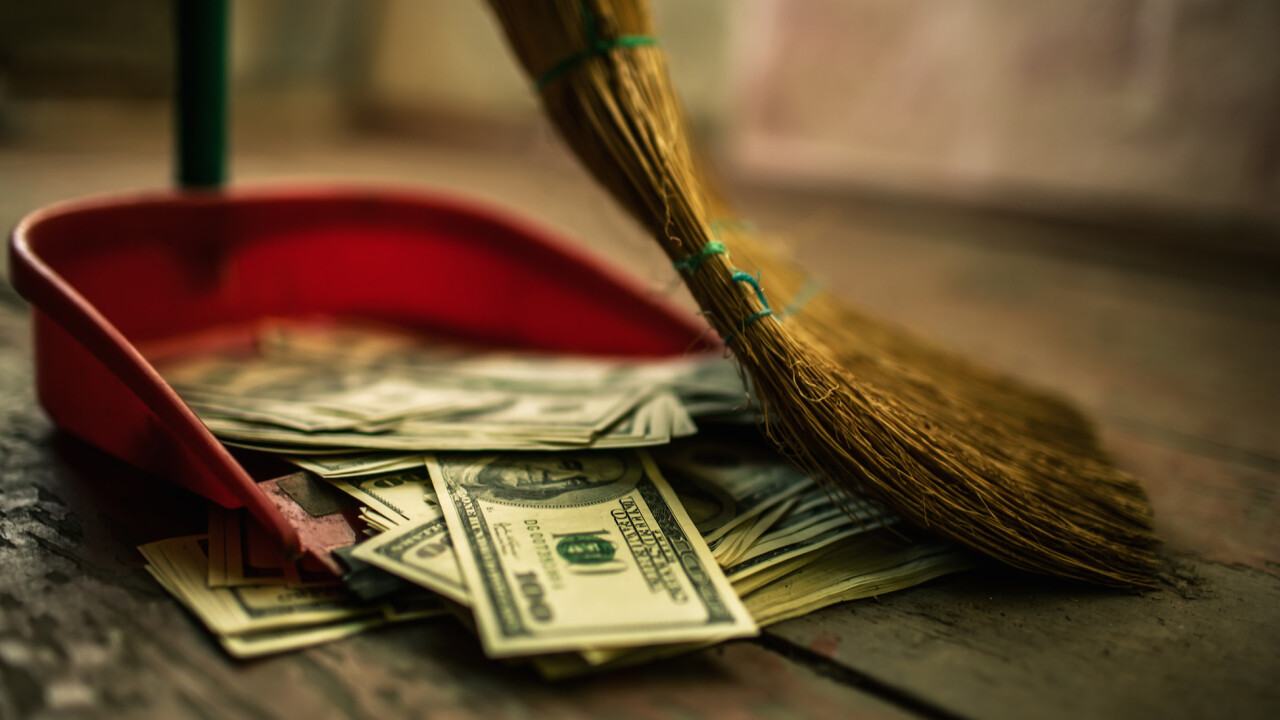
Paul Jarvis is a Web designer and bestselling author, who’s obsessed with nature and hairless rats. His latest book, Everything I Know, is a guide to freelancing as a creative professional.
People assume that if they’ve heard of you, you must be raking it in.
The theory goes something like this: If you work for yourself and make things that other people buy, your income magically skyrockets past what an average corporate job would pay.
Many times, readers or people asking for website design quotes have told me, “Oh, but I’m not rich like you.”
To which I look around my normal house (outside the city, where it’s cheaper) that I rent and my VW Golf that’s a few years old and think, “Wait a minute, I’m not rich like me either!”
I also look around at the other folks that make things on their own on the Web, and with a few exceptions, they’re not rich either.
Our views get skewed because our interest is also skewed. We are more keen or likely to read about the blogger who made six figures with ads or the writer who made $60,000 on their launch day. These stories are interesting because they are not the norm.
It’s not as exciting to read about the person who makes an extra $10,000 a year writing books on the side or the person who brings in an extra couple hundreds bucks a months with their product. That’s not as sexy, even though it’s the average.
If you’re new to the game of blogging or online business or putting your art onto the Internet, I’m doing you a solid by telling you this without the typical industry BS: there are A LOT of people out here trying to sell you the illusion of riches.
Put up a website, master conversions and BAM, your bank account will turn into an ever-skyrocketing balance.
Right? Except, it rarely works that way, even if you do what you do well, and build a following.
As far as income goes, I can’t complain—I’ve worked for myself a long time and have some semblance, as much as one can, of a steady income.
I also squirrel money away, like, well… a squirrel.
I make enough to enjoy a comfortable life, and I don’t take that for granted—ever. More than half of my income comes from the Web design work I do, which is why web design work comes before anything else (like writing or making new and fun creations).
I consider Web design my “day job” even though I work for myself. And as much as I enjoy it, I’m not 100 percent the boss of me, since I answer to my clients.
Writing, making, playing with digital products online is more like a side gig. Sure, they bring in money, but not nearly enough to survive on.
Just a little bit of math
Let’s look at the life of one book (it could be any self-produced product, though).
Say you sell it for $5 (the average price of my books). If you sell 10,000 copies, the simple math is $50,000! That’s good damn money for one book. But, let’s say it’s sold on Amazon, so that instantly becomes $35,000 if you are in the 70 percent royalty bracket (otherwise it’s 35 percent or $17,500).
The mailing list to support that costs $1,200/year and hosting would be $400. Copyediting cost you $1,000. Editing was another $4,000 and artwork $500. Now, we’re down to $27,900.
This assumes you don’t need a professional website for the book or your brand. This also doesn’t include corporate tax (upward of 15 percent in Canada, since we’re socialist bastards), which brings the total to $23,715.
If it takes you about 12 months to do a decent job on a book, that’s more than $6,000 below the poverty line in Canada (currently sitting around $30,000).
In the above scenario, that book is considered a best seller – and 10,000 people is nothing to shake a stick at (even if you’re into shaking sticks).
And yet, it didn’t earn you enough to keep yourself afloat for a year, especially if you have dependents or live in a city where the cost of living is high (I’m looking at you, Vancouver Island!).
I’m being overly simplistic with the numbers, but they aren’t far off from real scenarios. Sure, most authors make a bit of money writing for other people, if they’re lucky, but most paid articles run $200/1,000 words.
Even fewer get paid speaking gigs, which thankfully, jump into the $1,000s. But again, not many authors even hit the 10,000 book sales mark. Given that there are something like 12 million books on Kindle, the percentage of them that are best sellers is no doubt less than 0.1 percent.
You also have to factor in the sheer volume of work it takes to put out and sell into the best seller range. The work before launch, the work daily to cultivate and engage with an audience, the work required to pump out the necessary “content marketing” for your brand as often as possible too. It’s almost a full-time job to make less than minimum wage while having an audience bigger than what most creators dream of.
Yes, there are exceptions—called exceptions for a reason—where some very smart folks can make five or six figures on a single launch day. The thing about exceptions though, is that they’re not the rule/average/typical scenario.
Sounds bleak, right? So why bother?
The biggest reason, at least for me, is that it’s enjoyable. I love writing books, and would do it even if only a handful of people bought them. I’ve found a way to produce and promote them that fits with me and my personal style. I still have a day job to pay my rent, buy my plant-based groceries and put diesel in my little car.
The second reason is that I’ve found creativity thrives on limitations. Since I refuse to use my Web design income to fund my books, I’m left with a small budget to make things happen. So I get creative. I trade, beg, borrow, steal (ok, not the last one).
I get off on finding new and interesting ways to promote or get things done that cost little to no money. I also get creative with my time, since I don’t have a lot of it to spend on my side projects. So I create daily practices to get into the flow of writing quicker. I group similar tasks together to get them done faster and I say no to a lot of other things (like TV and a massive social life) so I can spend time creating.
Another thing to consider is that you can keep making money off of books or products as you put newer ones out. Every time I release a new book, my back catalog has a sales spike. So over time, as more art is created, more money is made.
It’s certainly not quick (if you’re producing one book a year), but I’m in this for the long game, the life game, not the quick-wins-at-all costs game.
I also enjoy the diversification of both income and creativity. Money-wise, if my Web design business suddenly dried up, I’d at least have some income from books and courses to keep me going. If my writing income dried up, at least I’ve got Web design. If I don’t pump out a book a year, I still get paid to write articles.
Tying this back into a conversation about money, being creative has never paid well.
Record labels keep their artists in debt to them, book publishers pay little-to-nothing in terms royalties, and so on and so on, since the dawn of time. Business people take advantage of the fact that artists care more about sharing their work than making money.
A lot of people find it horrible that artists are taken advantage of like this, time and time again. But really, it doesn’t matter.
Creatives thrive on limitations and pain can make art better (although certainly, it’s not required). Even with the gatekeepers removed from the mix, where artists can now connect directly with their audiences, there are still costs involved and not a whole lot of money to be made. Now there’s faster and cheaper entry but much more noise to cut through.
Being a touring musician for years, I was under no illusion that writing books or making things for audiences to consume would net me any riches.
I made enough in a band to keep touring and pay for recording new albums, but that was it. Same goes for writing— most of the money I make gets funneled back into writing more. Not because it has to, but because that’s where I want it to go. It’s not a lot, but it’s enough for me to keep going with it.
There are so many people out there offering to teach you how to be “rich like me.” They might mean well, and even if they’re being honest about their riches, they’re an exception to the rule.
I would absolutely love to live in a world where art is valued and paid for at the level of Fortune 500 executives, but we don’t live in that world – at least, not yet. And that’s ok, for the most part, because we can make a decent enough living (even if our art is a side project) and support ourselves and our art, and then (not to sound trite or overly motivational…) we’ll become rich in lots of other ways.
I’m not saying I don’t like money or even that artists should be so noble that money doesn’t matter, because that’s not true.
Get paid for your art, and the more you can get paid for it, the more power to you. As long as the way money is coming in lines up with your values then by all means “sell out,” as often as possible. Making money from your art is awesome and rewarding.
Art rarely makes artists lots of money. Yet we do it anyway. Most of us have little to no choice in the matter, because we feel we’re called to create, regardless of the outcome or income. And even if you “make it,” it’s still a long and hard road to actually see those riches. But we’ll keep aiming for it.
For me, I’m not trying to figure out the next book that’ll net me millions of dollars. I’m looking for the next book that’ll connect with an audience, who’ll in turn pay me enough so I can write more books. Anything left is a bonus.
Related: Invest in life experiences: Why you should buy less crap to be happier in life
Get the TNW newsletter
Get the most important tech news in your inbox each week.





